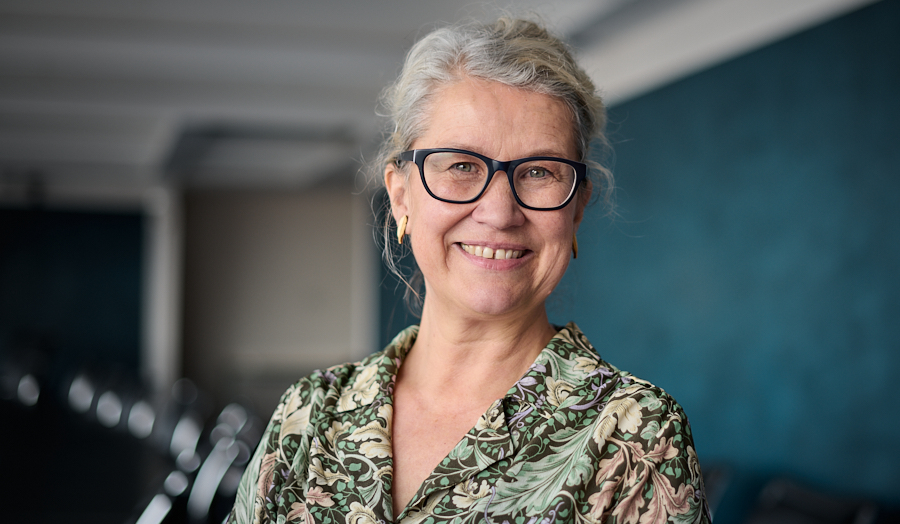Professor Julie Hall was born in Birmingham and went to school in Bromsgrove, Worcestershire, and then to Kingston University through clearing. She was the first in her family to attend university and credits her grandmother, a cleaner at Birmingham University, for opening her eyes to the possibility.
Julie graduated with a BA in Modern Arts in 1981, the first step in a lifelong engagement with further and higher education, mostly in inner-city London. Her second was a Post Graduate Certificate in Teaching and then a Masters in Urban Education at King's College London, all completed while working as a part-time lecturer and campaigner across a number of social justice issues.
Julie began her career teaching at South West London College of Higher Education, becoming a course leader of a new modular franchise programme for London Guildhall University, one of the universities that merged to create London Metropolitan more than thirty years ago. Julie has described the experience as life-changing and having a profound effect on her professional life and scholarship. This passion led Julie to join the Staff and Educational Development Association (SEDA), a community of practice dedicated to modernising and professionalising teaching in universities. As SEDA chair in the 1990s, Julie was invited to join the expert group set up by David Willetts, the Minister for Universities and Skills, to examine teaching quality and contributed to the creation of the HE Academy (now Advance HE) and the Professional Standards Framework for teaching in HE.
With three young children, Julie combined part-time lecturing in Sociology with scholarship, including a powerful publication in 2005, supported by Doreen Lawrence, Tell It Like It Is: How Our Schools Fail Black Children. The book brought together artists, practitioners, and scholars to revisit Grenadian scholar Bernard Coard’s seminal study How the West Indian Child is Made Educationally Sub-Normal in the British School System. Tell It Like It Is brought the debate firmly into the 21st century, and Julie toured with the book at town hall meetings around the country.
As an expert in inclusive, transformative pedagogies and academic quality assurance, Julie worked at Kingston University and then joined the Learning and Teaching Centre at Roehampton University, London. Over thirteen years there, Julie became the Director of Learning and Teaching and subsequently also led the Research Office and was interim Dean of the Business School, ending her time there as Pro Vice-Chancellor. It was at Roehampton that Julie was awarded a National Teaching Fellowship in recognition of her funded projects to close awarding gaps and increase student engagement in teaching enhancement. Julie was made Professor of Higher Education in 2016.
Julie was appointed Deputy Vice-Chancellor at Solent University Southampton in 2017, leading that university to an eventual gold TEF award and a successful £13m collaborative bid to the Department of Education to create a Maritime Skills Institute of Technology. She joined London Met as Deputy Vice-Chancellor in February 2022 and was appointed Vice-Chancellor on 1st August 2024.
Beyond the University, Julie is a Trustee of Southampton Forward, following her involvement in the city’s bid for City of Culture. Julie also acts as an expert academic adviser to the 4EU+ Universities Alliance and is a member of the Access to HE working group for London Higher and External Advisor to Fashion and the Arts Creating Equity.
Julie has also been on the boards of Southampton LEP and Southampton University Hospital and has chaired a Schools Educational Trust. She holds Principal Fellowship from Advance HE and is committed to mentoring others and diversifying university leadership.
Read more on London Met's news pages

